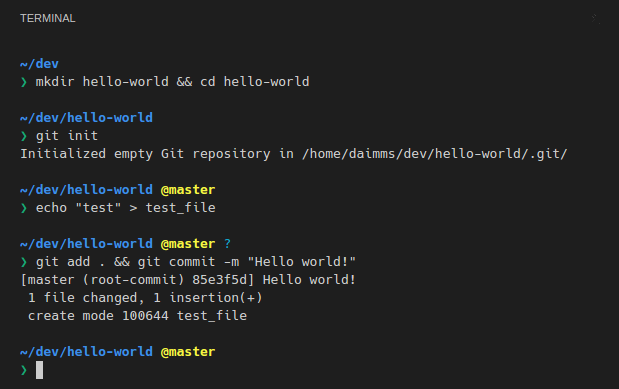

- #Unzip command how to#
- #Unzip command zip file#
- #Unzip command manual#
- #Unzip command archive#
- #Unzip command password#
This also arranges the extracted files and ensures they don't get mixed with other files present in the current directory.
#Unzip command zip file#
You can extract the ZIP file to a separate folder to keep the current directory prim and proper. Unzip a ZIP File to a Different Directory The -q essentially stands for quiet, hiding the output of the unzip command. You can mute the output of the command using the -q flag: unzip -q filename.zip The aforementioned command prints the name of all the extracted files in the output. Use the following command to unzip files in Linux: unzip filename.zip These files are extracted to the current directory by default, but you can change this by unzipping the file to a different directory. It does perform a single basic check on the passed parameter but nothing too fancy (strip spaces before/after then checks against null).The unzipping process extracts all the files present inside the ZIP file. bashrc file) įrom the command line just use unzipAll to unzip to the current folder or pass it a folder name: unzipAll /tmp extracts all to /tmp/%filename%. Greatly inspired (if not totally ripped from!) NixCraft and Ĭouple seconds after i figured “oh well”, i saved that much time so i might as well make something out of it… So instead of just ‘hardcoding’ it into a simple bash alias that doesn’t take parameters, I took a couple more minutes to have it let me at least input a base directory for extraction. It basically extracts all the zip files to the current directory, into a folder named after the zip filename. Since it was a temporary “view and delete” kind of thing and with well over a hundred files (not needing to be unzipped in a specific folder, current folder was just fine), i came up with this įor z in *.zip do q=$(echo $z | cut -f 1 -d '.') unzip $z -d. They obviously had to be extracted in separate folders so as to not overwrite the so precious files.
#Unzip command archive#
I had a pile of zip that each contained a index.html file and the archive structure had no folder. 🥺 Was this helpful? Please add a comment to show your appreciation or feedback ↓ Support the nixCraft with a PayPal donation if you use Adblock 🙏

Join the nixCraft community via RSS Feed, Email Newsletter or follow on Twitter. He wrote more than 7k+ posts and helped numerous readers to master IT topics. Vivek Gite is the founder of nixCraft, the oldest running blog about Linux and open source.
#Unzip command manual#
For more info consult manual page using the man command or help command: zip files on Linux, macOS, *BSD or Unix-like systems using a single go.
#Unzip command how to#
You learned about the shell problem associated with unzip command, and then we explained how to extract multiple. $ for z in *.zip do unzip -P 'my_password_here' "$z" done Summing up # Dealing with multiple zip files at the CLI # $ unzip -P 'your_password_here' file1.zip On Linux, you can hide processes from other users and ps command. Therefore, I provided a solution here with a warning.
#Unzip command password#
WARNING! The following is an insecure option on both single and multi-user operating systems as other users on the system can see your password passed using the -P option. The syntax is as follows to unzip multiple files from Linux command line: Method #1: Unzip Multiple Files Using Single Quote (short version) The solution is pretty simple when you want to unzip the file using the wild card you have two options as follows. $ unzip data.zip invoices.zip pictures.zip visit.zip

Your shell expands the command ‘unzip *.zip’ it as follows: It means extract invoices.zip, pictures.zip, and visit.zip files from inside the data.zip archive. Then I get the following message on my screen: Archive: data.zipĬaution: filename not matched: invoices.zipĬaution: filename not matched: pictures.zipĪbove error indicate that you used the unzip command wrongly. zip extension on Linux or Unix machine), enter: To unzip all files ( *.zip tells unzip to work on all files ending with. Here is what I see: data.zip invoices.zip pictures.zip visit.zip Let us verify it with the help of ls command: The problem with multiple zip files on LinuxĪssuming that you have four file in a /disk2/images/ directory as follows:


 0 kommentar(er)
0 kommentar(er)
